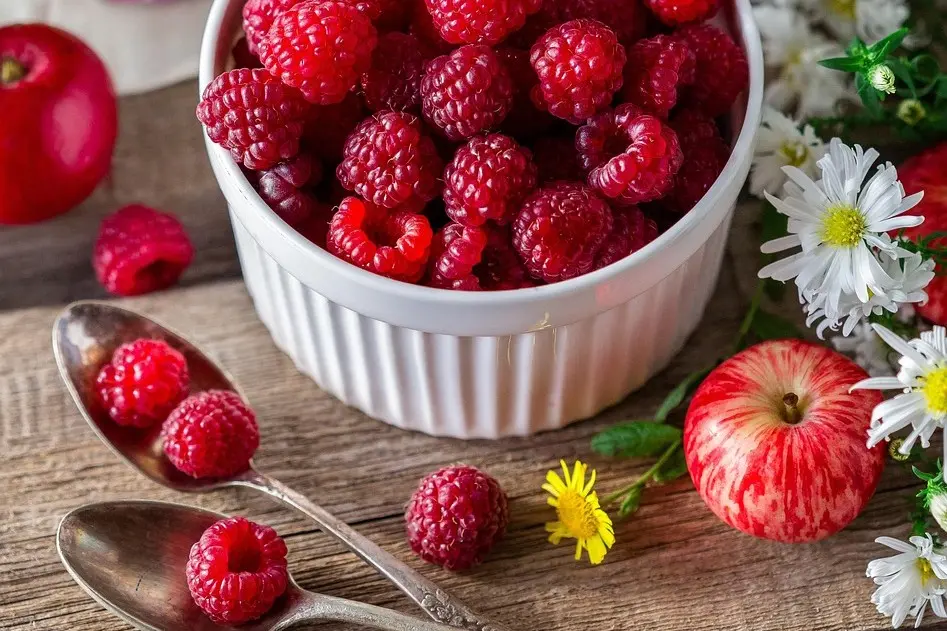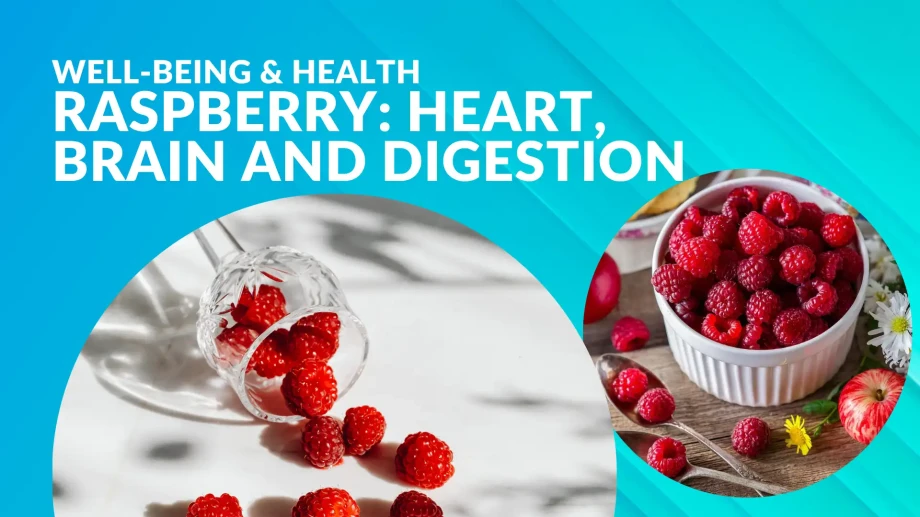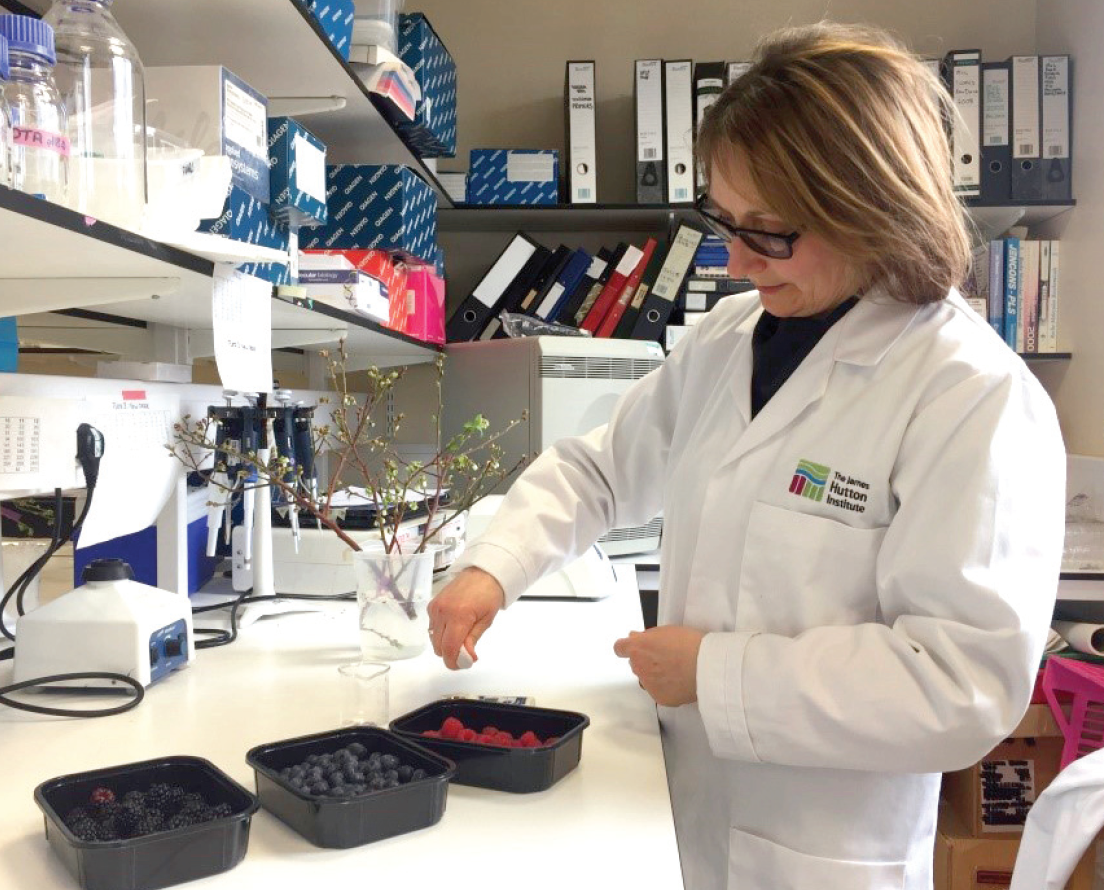Berries, with their variety of colors and flavors, have long been appreciated not only for their delicious taste but also for their remarkable nutritional properties.
Among them, the raspberry stands out as a true treasure trove of vitamins, minerals, and antioxidants, offering a wide range of health benefits that go far beyond basic nutrition.
Although there are red, black, purple, yellow, and golden raspberry varieties—each with a unique composition—attention often focuses on the red raspberry due to its well-documented qualities.
Let’s explore why this tiny fruit deserves a place of honor in our daily diet.
The Antioxidant Legacy of Berries
One of the most significant contributions of raspberries to human health lies in their high concentration of antioxidants.
These molecules are essential for our bodies, as they help neutralize free radicals—toxic substances that can stem from internal metabolic processes or external factors such as unhealthy foods (processed, high in fats and sugars) and pollution.
Excessive free radicals can lead to cellular damage, resulting in various health issues.
Raspberries are rich in essential antioxidants, including Vitamins C and E, selenium, beta-carotene, lutein, lycopene, and zeaxanthin.
They also contain flavonoids, plant compounds known for their antioxidant effects.

The Role of Raspberries in Cardiovascular Health
Heart health sees significant benefits from regular raspberry consumption.
Certain flavonoids, specifically anthocyanins—abundant in raspberries—have been shown to suppress inflammation, a contributing factor to cardiovascular disease.
Several antioxidants can reduce the risk of such diseases by preventing platelet aggregation and lowering blood pressure through anti-inflammatory mechanisms.
Raspberries are also a good source of potassium (186 mg per cup), a mineral encouraged by major health organizations to help prevent hypertension, a key risk factor for cardiovascular disease.
The fiber content, which is significant (8 grams per cup), plays a key role in managing and preventing high blood pressure, cholesterol levels, obesity, heart disease, and stroke.

Raspberries and Cognitive Function: A Brain Ally
A diet rich in antioxidants has been linked by experts to promoting brain and neurological health.
In particular, the abundant Vitamins C and E in raspberries may help protect cognitive abilities—such as thinking and memory—as we age.
Prevention Through Nutrition: The Raspberry’s Contribution
Dietary antioxidants like those found in berries are recognized for their potential to protect against various types of cancer, including lung, esophageal, and gastric cancers.
Specific studies have shown the effectiveness of red raspberry extract (Meeker variety) in fighting stomach, colon, and breast cancer cells—with antioxidants accounting for nearly half the destruction of breast cancer cells.
As for diabetes management, antioxidants in raspberries can help prevent inflammation, a known risk factor for type 2 diabetes.
Additionally, dietary fiber may reduce the risk of developing type 2 diabetes and improve symptoms in those already affected.
The natural sweetness of raspberries makes them an excellent dietary addition for those managing diabetes or excess weight, though their natural sugar content should be considered.

Fiber and Hydration: Raspberry's Digestive Benefits
The fiber and water content in raspberries is essential for maintaining a healthy digestive system and preventing constipation.
Adequate fiber intake promotes intestinal regularity, crucial for the daily elimination of toxins from the body.
Increasing fiber intake may also support blood pressure management, reduce cholesterol levels, and aid in weight loss.
Beyond Vision: Other Essential Nutrients in Berries
Raspberries also support eye health thanks to zeaxanthin, an antioxidant that filters harmful blue light and may help protect against age-related macular degeneration (AMD).
Additionally, raspberries contain other key nutrients:
- Vitamin C: Important for collagen production, essential for healthy skin and joints.
- Folate: Necessary for proper cell division, crucial for healthy fetal development during pregnancy.
- Vitamin K: Vital for proper blood clotting.
In summary, raspberries—and berries in general—are not only a pleasure for the palate but true health allies, with a nutritional profile that supports several vital bodily functions.
Including these fruits in your daily diet is a simple yet effective strategy to nourish the body holistically and promote lasting wellness, confirming their role in building a modern, functional, and quality-of-life-oriented diet.
Source: medicalnewstoday.com
🫐 Well-being & Health with Berries 🍓This article is part of the editorial series Wellness & Health with Berries, which brings scientific research closer to everyday life, promoting berries as allies for well-being. The series offers clear, up-to-date, and evidence-based content designed to inform consumers and support all operators in the berry supply chain. |








